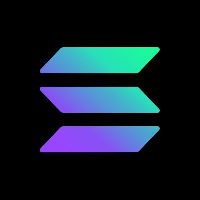Cryptocurrencies have grown far beyond Bitcoin. Among the newer players, Solana (SOL) has emerged as one of the fastest and most efficient blockchain platforms in the world. Known for its lightning-fast transaction speeds and low fees, Solana is positioning itself not just as another digital currency, but as a financial technology that even Wall Street can’t ignore.
What Is Solana?
Solana is a blockchain network created in 2020 with a focus on scalability and speed. Unlike Bitcoin or Ethereum, which can struggle with congestion and high fees, Solana was built to handle tens of thousands of transactions per second.Its secret weapon is something called Proof of History (PoH), a system that timestamps transactions before they’re confirmed. This keeps the network synchronized and drastically reduces the time it takes to process and validate activity.In simple terms: Solana allows people to send, receive, and build applications on blockchain technology with much greater speed and affordability than most of its competitors.
What Makes Solana Stand Out
Speed: Solana can process over 65,000 transactions per second compared to Ethereum’s 15–30.
Low Costs: Average transaction fees are just a fraction of a cent.
Ecosystem Growth: Developers are building decentralized apps (dApps), NFTs, and DeFi platforms on Solana, making it a hub for innovation.
Scalability: It’s designed to grow without drastically slowing down or raising costs.These features have made Solana one of the top cryptocurrencies by market capitalization, competing directly with Ethereum in the world of decentralized finance.
The Wall Street Connection
So why does Wall Street care? The answer lies in infrastructure.Big finance isn’t just interested in crypto as an investment—it’s interested in the technology behind it. Solana’s high throughput and near-instant settlement times mirror the kind of performance traditional financial markets demand. Stock exchanges, hedge funds, and payment processors all rely on speed and volume. Solana offers a blockchain that feels familiar to how Wall Street already works.In fact, some venture capital firms, investment funds, and financial institutions are exploring Solana as a foundation for new trading platforms, tokenized assets, and even faster settlement systems. While Bitcoin is often seen as “digital gold,” Solana looks more like a next-generation infrastructure for finance itself.
Why This Matters
The Wall Street component matters because it adds legitimacy and utility. Many cryptocurrencies are speculative, relying on hype or niche communities. Solana’s ability to meet the performance standards of global finance gives it a practical edge. If banks, exchanges, and institutional investors start building on Solana, its importance could grow far beyond retail traders and crypto enthusiasts.
Solana is more than just another cryptocurrency—it’s a high-speed blockchain that might help power the financial systems of the future. Its efficiency, low costs, and scalability make it attractive not just to developers and crypto users, but also to the biggest players in global finance.In short: while Bitcoin brought attention to cryptocurrency, Solana may bring Wall Street directly onto the blockchain.

